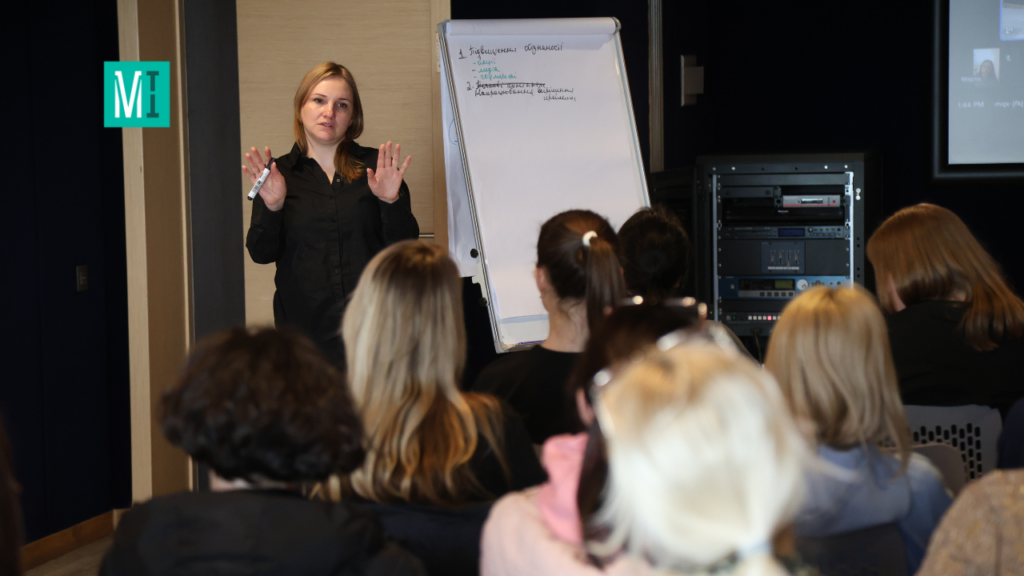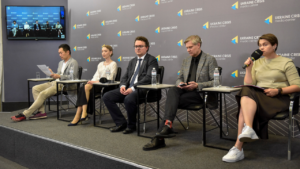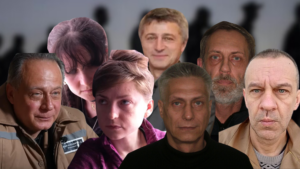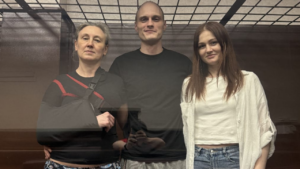In search of relatives: the MIHR organized training for POW’s families and missing persons

The Media Initiative for Human Rights held a two-day training for NGOs, community groups of POWs, civilians, and missing persons families, including units of the Ukrainian Armed Forces (including the Ukrainian Navy) and the National Guard.
A total of 69 participants joined the training, 27 offline. During the event, they learned how to cooperate with donors and international partners, the nuances of fundraising for families of missing persons and prisoners of war, and mastered the tools of national and international advocacy and the specifics of internal and external communication.

Participants of MIHR training for community groups of POWs, civilians, and missing persons families. Photo: Viktor Kovalchuk
The head of the MIHR, Olha Reshetylova, emphasized that to effectively search for prisoners of war, civilians, and missing persons, their relatives should unite. The MIHR recommends that this should be done by the units where the servicemen are serving or at the place of their disappearance or capture. The same applies to the unification of families of civilians who went missing or were arbitrarily detained by the Russian military or occupation authorities.

Olha Reshetylova, the head of the MIHR. Photo: Viktor Kovalchuk
Human rights activist and co-founder of Truth Hounds Yaropolk Brynykh introduced the training participants to effectively interact with donors, prepare projects, and submit grant applications.
The second day was devoted to national and international advocacy.

Yaropolk Brynykh, human rights activist and co-founder of Truth Hounds. Photo: Viktor Kovalchuk
Alyona Lunova, Advocacy Director at the Human Rights Centre ZMINA, shared practical advice on working with government agencies and international partners and spoke about successful examples of advocacy. The participants learned how to define advocacy goals, their attributes, levels, ways to plan advocacy activities, and what tools to use. At the level of international advocacy, they talked about defining its purpose and ways of implementation, in particular in the context of promoting the interests of families of prisoners of war, arbitrarily detained civilians, and missing persons.

Alyona Lunova, Advocacy Director at the Human Rights Centre ZMINA. Photo: Viktor Kovalchuk
Oleksandr Ravchev, a trainer and communication consultant, spoke about forming clear and understandable messages, determining communication channels, and the importance of presence in the information space. In particular, he focused on the critical communication rules with government agencies, institutions, and international organizations. He also explained the means of effective information dissemination so that the issues of prisoners of war and missing persons are known to as many people in Ukraine and abroad as possible.

Oleksandr Ravchev, a trainer and communication consultant. Photo: Viktor Kovalchuk
At the end of the two-day training, the participants appreciated the usefulness of the information received, which will be helpful in the activities of NGOs, community groups of POWs, civilians, and missing persons’ families. According to the training participants, the new knowledge will strengthen their ability to identify further areas of communication with government agencies and, institutions, international organizations and allow them to prepare high-quality national and international advocacy activities for the search for missing persons, the return of prisoners of war and arbitrarily detained civilians. The same applies to finding donors who can support their initiatives so that civil society organizations and communities of families can be even more effective.

Photo: Viktor Kovalchuk
The training was held within the framework of the project “Support for Families of Missing Persons Due to the Aggression of the Russian Federation: Search and Enhancement of Communication Capacity” with the Ukrainian Helsinki Human Rights Union with the financial support of the Partnership for a Strong Ukraine Foundation.






